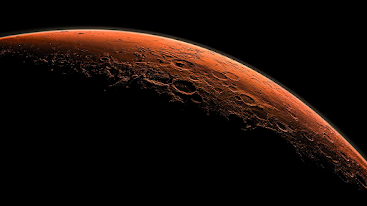Happy New Year
Quadrantid meteor shower
The annual Quadrantid meteor shower peaks the night of January 3-4 (late Tuesday). These meteors are from particles off an asteroid which crossed Earth’s orbit. Some of those particles are large enough to provide spectacular fireballs - although unpredictable, they are wonderful if you catch one. The meteors originate just off the handle of the Big Dipper, and they are called Quadrantids from an older constellation name.
The peak lasts just a few hours, and unfortunately there will be a bright Moon in the sky, making it hard to see the fainter meteors.
Remember to dress warmly as it always feels about 10 degrees cooler than the actual temperature when you aren’t active.
Mars
Mars is now shining brightly in the south throughout the evening – easy to see with its slightly reddish glow. If you are reading this on Monday night, you will find Mars just to the right of the Moon.
Jupiter
Jupiter is much further west in the sky, but it is the brightest “star” in that area. With binoculars, you should be able to pick out its brightest moons and see their movement from night to night.
Venus
Venus is brightening in the western evening sky, and over the next while it will brighten even more as it also climbs further away from the setting Sun.
Astronomical trivia
Earth is in a very slightly elliptic – egg-shaped – orbit, meaning its distance from the Sun varies over the course of the year. Midday Wednesday we will be at our closest to the Sun – just over 147 million km versus Earth’s average of 149 million.



No comments:
Post a Comment